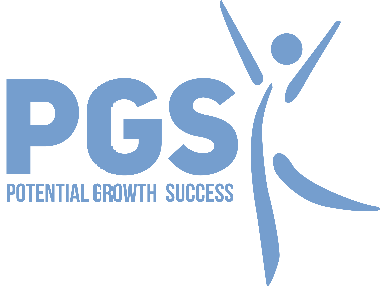At PGS-Educators, we believe that early intervention can rewrite the story for pupils most at risk of exclusion.
As the Primary Programme Director, I spend a lot of time listening to schools describe the same painful pattern.
A child leaves Year 6 with potential, personality, and a reputation for being “a bit lively”. Within months of starting secondary, they’re on behaviour reports. By the end of Year 7 or 8, they’ve had multiple suspensions. For a small but significant group, that path ends in permanent exclusion. When you look closely, those children are rarely a surprise: many had known or suspected special educational needs, lived in poverty, were navigating trauma or instability, or were already disengaging in Key Stage 2.
That pattern is why this work matters.
In England alone government data (2023/2024) shows, 955,000 suspensions and 10,900 permanent exclusions were recorded in 2023/24, the highest on record. That is not just behaviour data; it is lost learning, fractured relationships, and disrupted futures. Pupils eligible for free school meals are suspended at over four times the rate of their peers and permanently excluded at over five times the rate. For pupils with special educational needs (SEN), the risk multiplies again: a child with SEN support is several times more likely to be suspended or permanently excluded than a child with no identified SEN.
This is where intersectionality becomes impossible to ignore.
The children most likely to be removed from classrooms are often:
- Navigating SEN and neurodivergence without timely assessment or reasonable adjustments
- Living with poverty, housing insecurity, or caring responsibilities
- Carrying the weight of system inequalities, discrimination, or cultural misunderstanding
- Processing unseen trauma, including domestic abuse, loss, or instability.
By the time they are sanctioned, they have usually been sending signals for years.
What looks like “defiance” may be sensory overload.
What sounds like “rudeness” may be language processing difficulty.
What’s labelled “can’t be bothered” might be chronic anxiety, hunger, or exhaustion.
Behaviour that is the visible tip of an iceberg is often built from underlying adversities.
Early intervention is not a luxury; it is the difference between systems that react to crises and systems that deliberately grow thriving, self-aware young people and societies that they inhabit. “It requires a whole-child, relational approach that begins in primary and is especially intentional for pupils at the intersection of SEN, disadvantage, and vulnerability.
That is the premise behind our Primary Intervention Programme.
We focus on three core strands:
- Social and emotional awareness
Helping pupils recognise body signals (racing heart, shaky hands, tight tummy), name emotions, read social cues, and understand how their brain responds to stress. This is crucial for neurodivergent pupils, who are so often misunderstood for communication differences or sensory needs that requires tools and understanding to manage them. - Practical regulation and problem-solving tools
Teaching simple, repeatable strategies: zones of regulation, breathing techniques, movement breaks, wellbeing, planning routines. - Bridging learning, behaviour, and transition
Supporting pupils to link their emotional state to their learning, their sense of belonging, their attendance, and their relationships, laying the groundwork for a smoother, safer move into secondary school and the wider community.
To make this real, we’ve developed workbooks and sessions that use multiple learning styles, visual, written, discussion-based, creative so that pupils with different needs can access the content meaningfully. In our pilot schools, we have already seen:
- increased confidence in talking about feelings and worries
- improved engagement in lessons from pupils previously at risk of disengaging
- more intentional use of regulation strategies instead of immediate escalation
- stronger home–school conversations about wellbeing and behaviour
Schools we have partnered with are already beginning to see early signs that these shifts align with reductions in behaviour incidents and more positive engagement for identified pupils. With children sharing that they feel more confident in talking to a trusted person about their feelings and feeling less anxious about their transition to secondary school.
This matters far beyond childhood. Adults with higher emotional intelligence (EQ) are more able to:
- Manage stress and adapt at work
- Navigate conflict and boundaries in relationships
- Advocate for themselves, seek support, and make considered choices.
When we invest early in pupils’ social and emotional awareness, especially those facing layered disadvantage, we’re not just aiming for fewer suspensions or neater behaviour logs. We are building the foundations of employment, healthy relationships, independent living and community participation.
Our Primary Intervention Programme is our commitment to that future: catching the signals earlier, reading them more intelligently, and giving children the tools and adults the training to change the story before exclusion becomes the headline. Early intervention is just the beginning, we have a commitment to also support secondary schools through a multitude of evidence-informed initiatives that improve well-being, behaviour and academic attainment.
Early intervention doesn’t just prevent exclusions; it transforms trajectories. If your school is interested in piloting or learning more about our Primary Intervention Programme, please get in touch with me.

